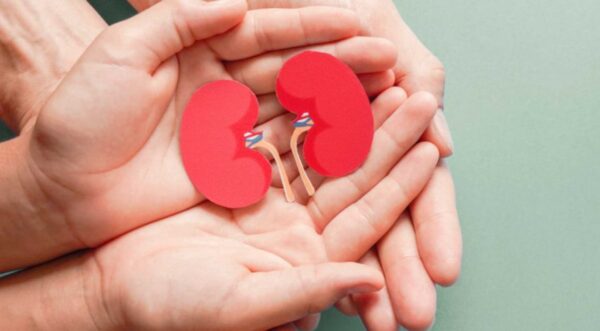Lifestyle
5 warning signs your kidneys aren’t working properly

Our kidneys are responsible for filtering wastes from the body.
When the kidneys are damaged due to physical injury or conditions like high blood pressure or diabetes, they cannot filter the toxins from the body, leading to toxin build-up.
The signs of kidney damage are so subtle that it often goes unnoticed in the initial years. For the same reason, it is also called a ‘Silent Killer’.
Here are some common signs of a toxic kidney to watch out for.
1. Swollen ankles and feet
The two beans shaped organs present at the lower abdomen help to filter waste and excess sodium from the body. When the kidneys are unable to function efficiently, the body starts retaining sodium. This eventually leads to swelling of ankles and shin. The condition is referred to as edema. One may also notice swelling in other parts of the body like eyes and face, but it primarily affects hands, arms, feet, ankles and legs.
2. Weakness and tiredness
Feeling tired or weak all the time is generally the early sign of a liver problem. As the kidney disorder becomes severe, the person starts feeling more and more weak and tired. Even doing some simple household chores or walking a little may seem burdensome for the person. It happens due to toxins build-up in the blood due to inefficiency of the kidneys.
3. Decreased appetite
Accumulation of toxins and waste in the body may also decrease the appetite, eventually leading to weight loss. Another reason for low appetite can be early morning nausea and vomiting. These unpleasant feelings may leave you with a little craving for food. The person may feel full all the time and would not feel like eating anything. It can be an alarming sign.
4. Changes in urine frequency
A normal healthy person passes urine 6-10 times a day. Using the loo more than that can be an indication of kidney damage. In the case of a kidney problem, a person may either urinate too little or too frequently. Both conditions can further damage the kidneys. Some people even spot blood or excessive forth in their urine. It happens because blood cells start to leak out into the urine due to damaged kidneys.
5. Dry and itchy skin
Dry and itchy skin along with other symptoms of kidney damage can be a sign of advanced-stage kidney disorder. This may happen when the kidneys are not able to flush out toxins from the body and they start accumulating in the blood, leading to itchiness, dryness and foul-smelling skin. Kidney problems can also lead to bone disease.
The bottom line
Kidney disorders can be prevented by taking measures at the early stage, which can only be possible if the symptoms can be diagnosed on time. The risk of developing kidney disorder is higher in those suffering from high blood pressure, sugar and cholesterol levels. These people should keep monitoring their condition and get annual health check-ups to know how other organs are working. Medical check-ups help to detect problems at the initial stage and start treatment earlier.










